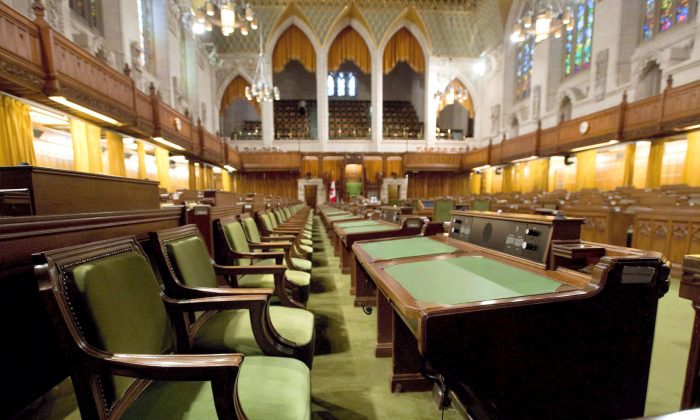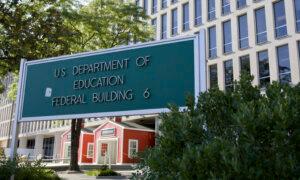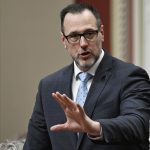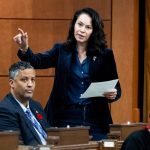Commentary
In January, two citizens filed a legal challenge against Prime Minister Justin Trudeau’s decision to prorogue Parliament until March 24.
The Federal Court, under Chief Justice Paul Crampton, granted an expedited hearing for the case, which took place on Feb. 13 and 14 in Ottawa. A decision is pending.
The applicants, David MacKinnon and Aris Lavranos, argue that the prime minister’s prorogation is unconstitutional and is serving partisan interests rather than advancing the nation’s welfare. Disrupting legislative processes, they argue, prevents members of Parliament from effectively overseeing government actions and undermines Parliament’s ability to address urgent national concerns, such as the looming U.S. tariffs.
The University of Ottawa’s Public Law Centre’s Constitutional Law Initiative has intervened in this case—not to defend this particular act of prorogation—but to argue against judicial intervention in such political decisions. They contend that limiting the prime minister’s prorogation powers would constitute an unprecedented judicial overreach into political affairs. Such an intervention means that the court would “insert itself into the political life of the country in a way that courts throughout Canadian history have refused to do.”
In short, they believe prorogation is best left to political processes rather than judicial scrutiny, arguing that judicial involvement in prorogation matters would disrupt the delicate balance between Canada’s executive and legislative branches.
The case has rekindled a pivotal debate in Canada: the judiciary’s role in political decisions. Should the judicial branch intervene in matters traditionally within the executive’s domain—such as prorogation, which the two citizens contend was employed here for overtly political purposes? Or should the courts exercise restraint to uphold the separation of powers?
Traditionally, Canadian courts have exercised judicial restraint in political matters, upholding the doctrine of parliamentary supremacy, which holds that the legislative body holds ultimate authority over all other government institutions, including the executive and judiciary.
However, the 1982 repatriation of the Constitution and the Charter of Rights marked a transformative period in constitutional law, expanding judicial oversight into areas previously dominated by legislative and executive branches. Once cautious in political affairs, the judiciary now plays a key role in shaping the nation’s political and cultural landscape. Through the mechanism of judicial review, the courts have repeatedly struck down legislation, redefined constitutional conventions, and compelled Parliament to act in ways it might otherwise have resisted.
For instance, in Reference re Secession of Quebec (1998), the Supreme Court addressed the complex issue of Quebec’s potential secession. While acknowledging that Quebec lacked a unilateral right to secede under Canadian or international law, the court emphasized that a clear referendum result would obligate the federal government to negotiate terms of secession. This decision highlighted the judiciary’s role in navigating national unity and political questions.
Similarly, in Carter v. Canada (2015), the Supreme Court revisited its earlier stance from Rodriguez v. British Columbia (1993) and struck down the prohibition on physician-assisted dying. The court found that the existing law infringed upon the Charter right to life, liberty, and security of the person. This ruling not only overturned precedent but also compelled Parliament to enact new legislation aligning with the court’s interpretation of constitutional rights.
The debate over Prime Minister Trudeau’s prorogation of Parliament brings the question of judicial intervention in political affairs into sharp focus. At its core, the issue is whether this particular instance of prorogation warrants judicial scrutiny distinct from past precedents.
The two citizens argue that judicial intervention is necessary when executive actions, such as prorogation, are deployed to evade parliamentary scrutiny or stifle legislative debate. They contend that the judiciary possesses both the authority and the obligation to intervene when executive actions, such as prorogation, are employed to circumvent parliamentary oversight or suppress legislative discourse.
They maintain that without judicial oversight, prorogation could be misused, transforming a legitimate parliamentary procedure into a tool that shields the government from accountability, thereby undermining Parliament’s fundamental role as the cornerstone of democratic governance.
By contesting this prorogation, the challengers seek to reaffirm the foundational principle that executive authority must remain bound by constitutional limitations. Their argument underscores a broader concern: If prorogation can be wielded to bypass accountability without consequence, it establishes a dangerous precedent that risks weakening legislative power and eroding public trust in democratic institutions.
The government argues that it has met the only constitutional requirement, which says that Parliament must sit at least once every 12 months.
“During the brief period of the prorogation, only five scheduled sitting weeks of the House of Commons will have been interrupted and the executive branch of government has and will continue to function effectively,” the government says in its submission to the court.
The government adds that any intervention by the courts would be “contrary to binding authority and unwarranted,” and that the government is “accountable to the House of Commons and, ultimately, the electorate for the decision to prorogue.”
The legal battle serves as a critical moment in defining the evolving role of the judiciary in Canadian democracy. It underscores the ongoing tension between respecting traditional political conventions and ensuring that executive power is subject to meaningful constitutional scrutiny.
Chief Justice Crampton’s forthcoming decision will help sculpt the parameters of judicial oversight in political contexts, guiding the enforcement of constitutional boundaries in the years ahead.













